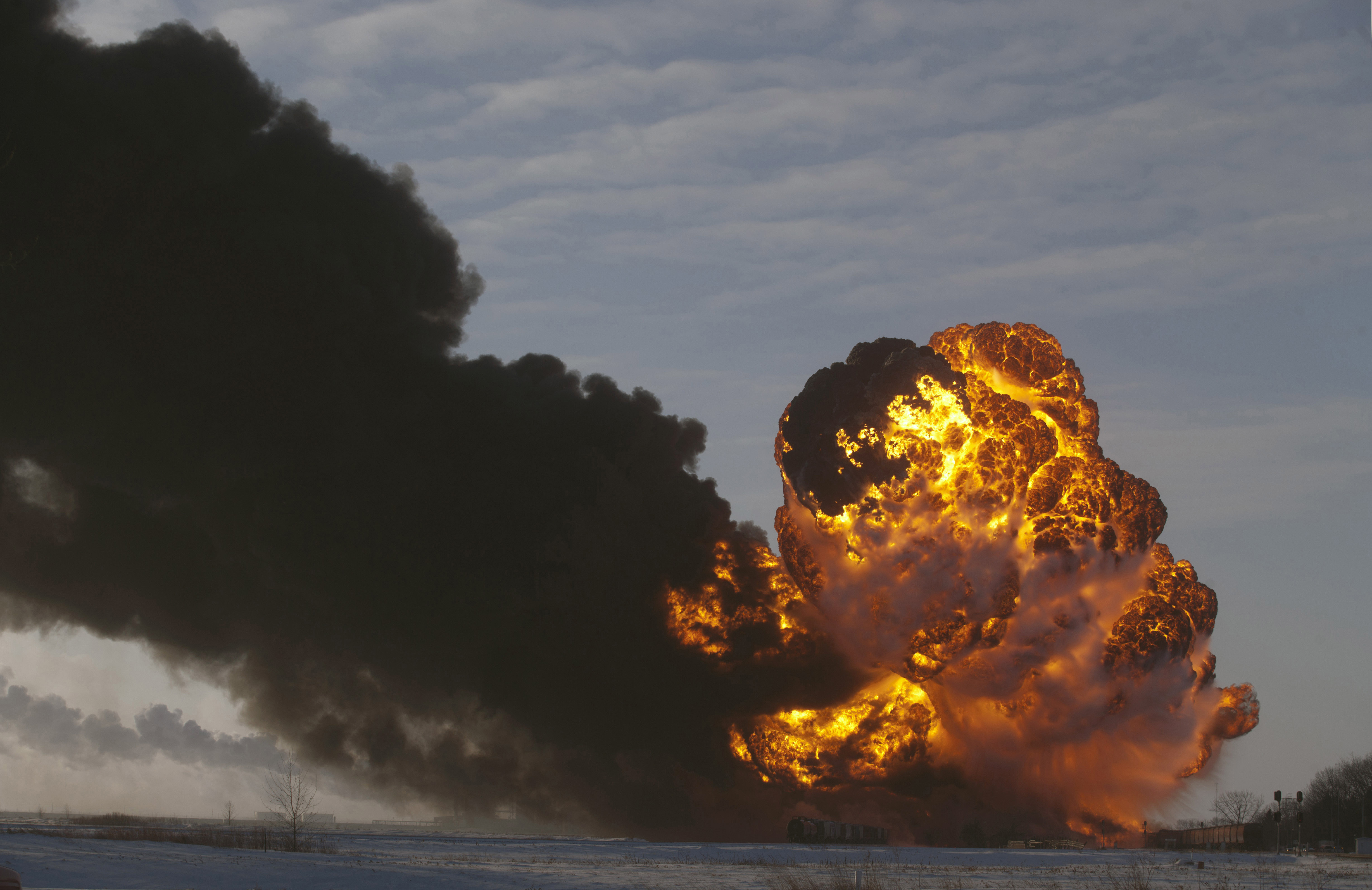Following a spate of scary, fiery accidents involving trains carrying crude oil from North Dakota — the most recent of which occurred last week in Virginia — federal safety officials are ramping up protections. Calling oil-by-rail an “imminent hazard,” the Transportation Department announced it’s requiring railroads to give state emergency management officials the heads up when they transport large amounts of the highly flammable oil through their states, and recommending that they stop using older, easily ruptured tank cars.
The Wall Street Journal reports:
The Transportation Department’s nonbinding safety advisory, which carries less weight than an emergency order, said shippers should use the sturdiest cars in their fleets to transport crude from the Bakken shale.
The advisory effectively applies to about 66,500 tank cars—68% of the total commonly used to transport oil and other flammable liquids. Shippers instead should use the roughly 31,000 cars that have been retrofitted to improve safety or were built to higher standards.
…the agency also issued an emergency order Wednesday requiring railroads operating trains carrying more than one million gallons of Bakken crude the oil—about 35 carloads—to notify state officials about the movement of these trains. Trains transporting oil typically include at least 100 cars.
Railroads haven’t historically liked to disclose the routes or contents of their hazardous-material shipments even to the communities they travel through. But the Association of American Railroads, which represents the country’s big freight railroads, said its members will “do all they can to comply with the Transportation Department’s Emergency Order.”
State and local officials have complained that they haven’t been told about crude shipments, which have been rising rapidly. About 715,000 barrels of Bakken crude are being shipped by rail each day, according to the North Dakota Pipeline Authority, or almost 10% of all the oil pumped in the U.S.
On a larger scale, Transportation Secretary Anthony Foxx said at a Senate committee hearing Wednesday, the department is working as quickly as possible to implement new safety regulations for crude oil shipments. But the current placeholders are being criticized as too weak — in Canada, as a point of contrast, the Transport Ministry was much tougher, giving railcar owners 30 days to stop using their least crash-resistant tank cars.
“Making it voluntary is not going far enough,” Sen. Maria Cantwell, D-Wash., told Foxx, noting that oil trains travel through “every major city in the Northwest … hitting every urban center in our state,” and putting all of them at immediate risk.

